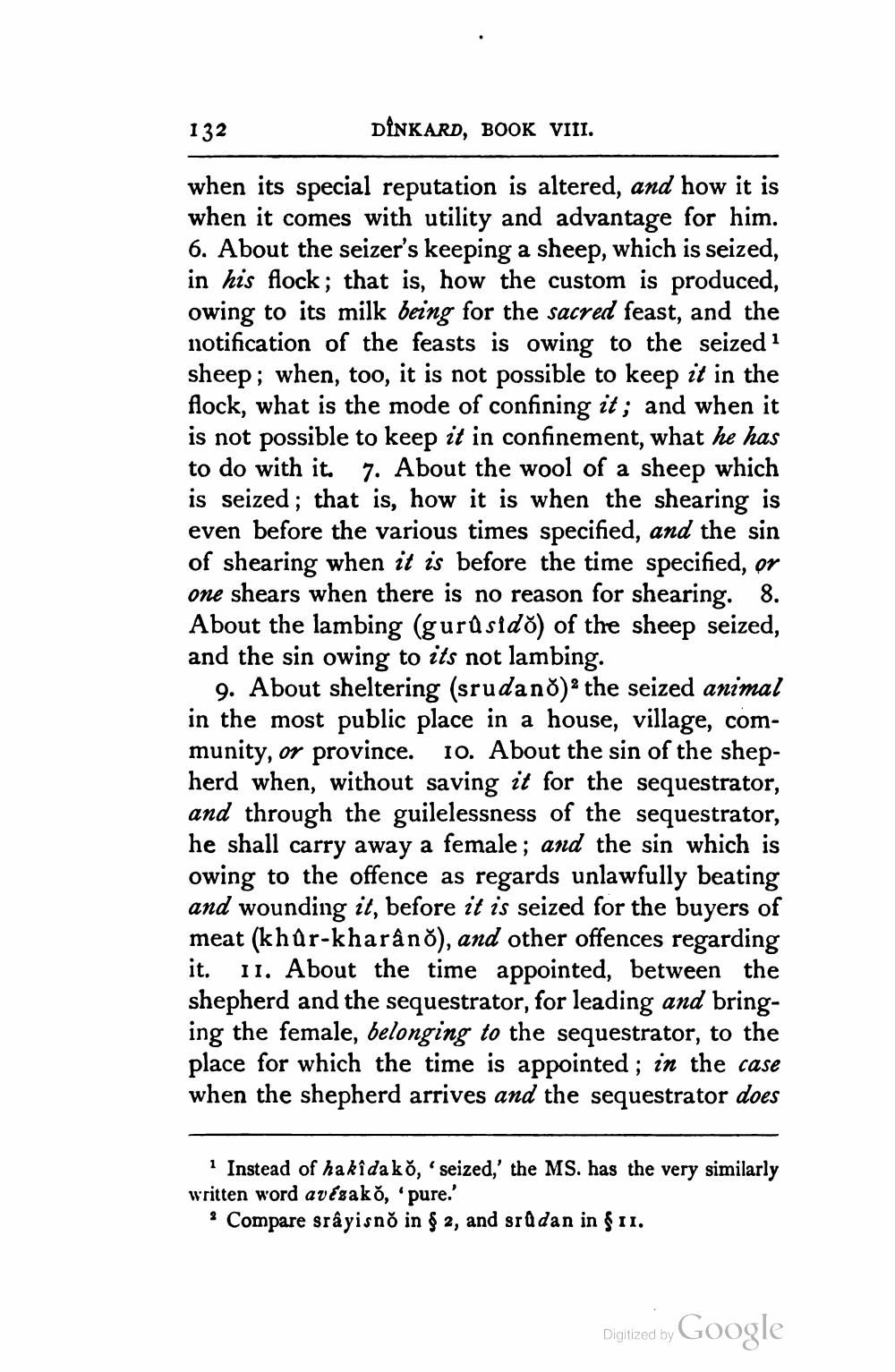________________
132
DİNKARD, BOOK VIII.
when its special reputation is altered, and how it is when it comes with utility and advantage for him. 6. About the seizer's keeping a sheep, which is seized, in his flock; that is, how the custom is produced, owing to its milk being for the sacred feast, and the notification of the feasts is owing to the seized 1 sheep; when, too, it is not possible to keep it in the flock, what is the mode of confining it; and when it is not possible to keep it in confinement, what he has to do with it. 7. About the wool of a sheep which is seized; that is, how it is when the shearing is even before the various times specified, and the sin of shearing when it is before the time specified, or one shears when there is no reason for shearing. 8. About the lambing (gurû sido) of the sheep seized, and the sin owing to its not lambing.
9. About sheltering (srudano)2 the seized animal in the most public place in a house, village, community, or province. 10. About the sin of the shepherd when, without saving it for the sequestrator, and through the guilelessness of the sequestrator, he shall carry away a female; and the sin which is owing to the offence as regards unlawfully beating and wounding it, before it is seized for the buyers of meat (khår-kharâno), and other offences regarding it. 11. About the time appointed, between the shepherd and the sequestrator, for leading and bringing the female, belonging to the sequestrator, to the place for which the time is appointed; in the case when the shepherd arrives and the sequestrator does
Instead of hakidakò, seized,' the MS. has the very similarly written word avesako, 'pure.'
. Compare srayisno in § 2, and srû dan in $11.
Digitized by Google




